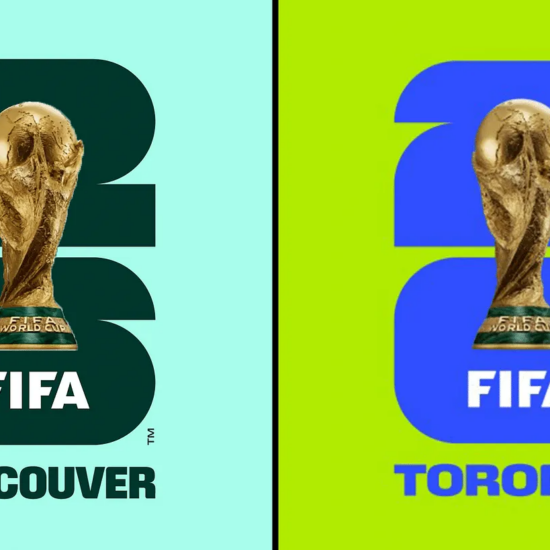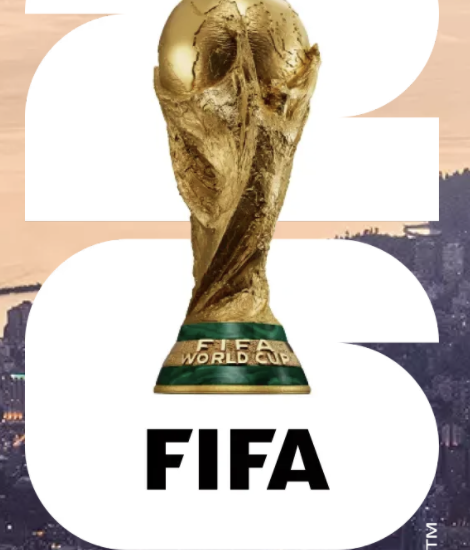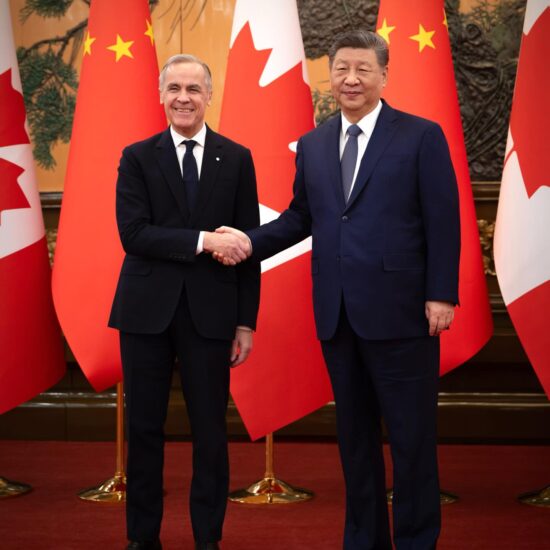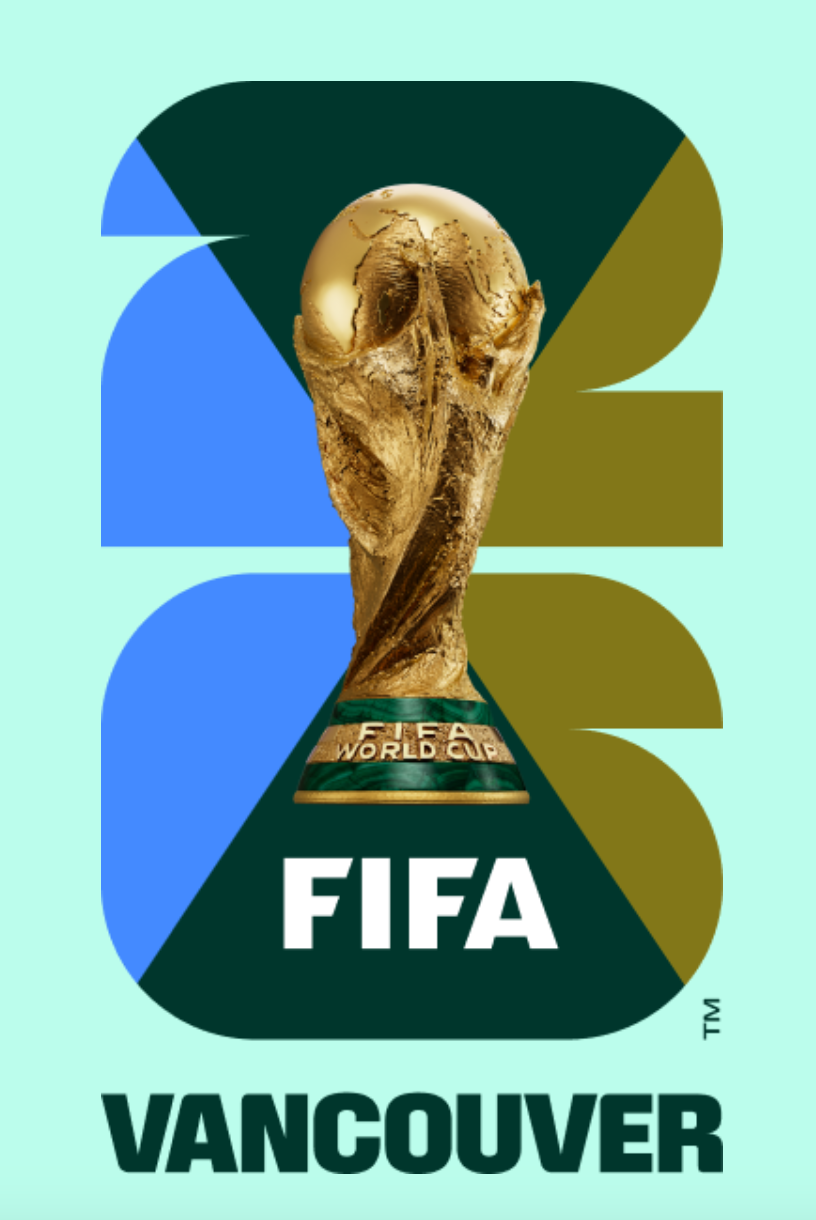
Bob Mackin (Updated July 31, 2024)
Could the Canadian Soccer Association (CSA) drone spying scandal at Paris 2024 result in disqualification of the Canadian men’s team from the FIFA World Cup in 2026?

Joey Lombardi (left), Bev Priestman and Jasmine Mander (CSA)
Women’s Olympic team head coach Bev Priestman, assistant coach Jasmine Mander and analyst Joseph Lombardi were sent home, after French police caught Lombardi flying a drone around New Zealand’s closed training session in Saint-Etienne. FIFA banned each of them for a year.
TSN reported that Canadian men’s and women’s programs had been spying on opponents for years, something the CSA admitted to FIFA in a legal document presented to the Court of Arbitration for Sport.
The incident involving the defending gold medal champions dominated international media attention before the July 26 Olympic opening ceremony. FIFA handed Canada a six-point tournament penalty, but there could be more consequences to come.
If it goes deeper, FIFA could revoke Canada’s Tokyo gold medal, issue additional individual suspensions or even penalize the CSA, co-host of the FIFA World Cup 26 with U.S. and Mexico. It is the biggest Canadian Olympic scandal since 1988 when sprinter Ben Johnson lost his gold medal and world record after failing a doping test in Seoul.
A former radio reporter from Mexico, who now runs a Vancouver market research company, said FIFA set a precedent after a 1988 scandal involving Mexico’s junior men’s national team.
Mexican reporter Antonio Moreno noticed some of the ages of players in a publication by the Mexican federation conflicted with those on a roster sheet for the 1988 CONCACAF under-20 tournament in Guatemala.

(FIFA/CSA)
Mexico dominated the tournament and qualified for the Saudi Arabia 1989 FIFA World Youth Championship with at least four over-age players. Officials from the U.S. and Guatemala complained to CONCACAF, FIFA’s North and Central American and Caribbean zone. The scandal became known as “Cachirules,” named for an entertainer who often portrayed younger male roles.
“The way in which people felt about it is, Mexico has always been a friend of FIFA. It had just organized the 1986 World Cup after Colombia pulled out,” said Mario Canseco of Research Co. “At the time, the CONCACAF president [Joaquín Soria Terrazas] was also from Mexico, so the thought was, we’ll just get by with a slap in the wrist, nothing is going to be taken too seriously. But FIFA really did take it seriously.”
FIFA agreed with CONCACAF’s findings and banned all Mexican national teams from international competition for two years. That included the Seoul 1988 Olympics and qualifying for the Italy 1990 World Cup.
“It’s a different situation [in 2024], but if we had the same type of punishment — because if it’s a two-year situation that affects all of the teams — then Canada could conceivably not host the World Cup,” Canseco said.
Canada qualified automatically for the 2026 men’s championship with the U.S. and Mexico. It is scheduled to play once in Toronto and twice in Vancouver during the opening round of the 48-nation tournament. Vancouver could spend up to $581 million on hosting while Toronto is expecting to spend $380 million. The federal security budget has not been announced. CONCACAF president Victor Montagliani of West Vancouver is also a vice-president of FIFA.
Remaining teams in CONCACAF are vying for three berths. Another two teams could still enter as wildcards via an inter-confederation playoff.
Canada qualified for its second World Cup, in Qatar 2022, as CONCACAF’s top team with an 8-4-2 record under coach John Herdman. Mexico and U.S. finished second and third, while Costa Rica won a wildcard berth. Panama, one of the teams Canada defeated, finished fifth.
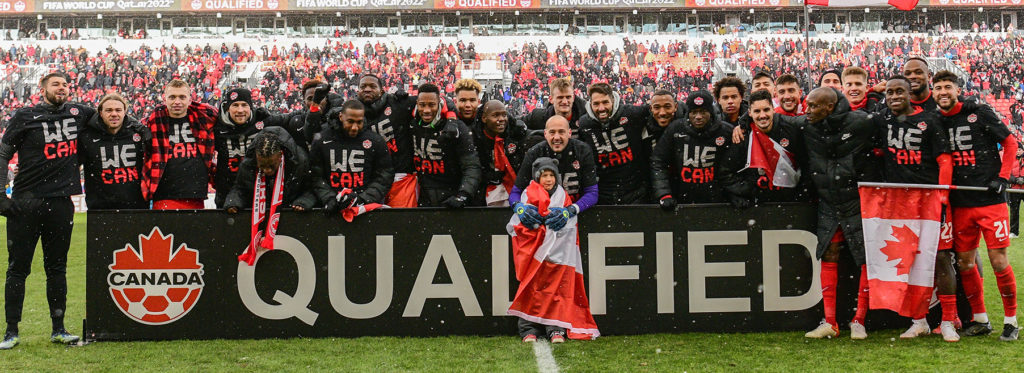
Canada’s men’s national team in 2022 (CSA)
Herdman quit last year to coach Toronto FC of Major League Soccer. He previously coached the Canadian women’s team to two Olympic bronze medals between 2011 and 2018. Herdman told reporters in Toronto on July 26 that he was “highly confident” that drones were not used during his coaching career with the CSA.
FIFA rules for Paris 2024 specifically banned drones “over any tournament training sites and stadiums.” The Court of Arbitration for Sport upheld the six-point penalty before Canada qualified for the quarter-finals on July 31, but IOC spokesperson Mark Adams said any further discipline would be up to FIFA.
The FIFA Appeal Committee’s July 28 “Notification of the grounds of the Decision” included evidence from the CSA that use of a drone to scout opposition dated back to Herdman’s tenure.
“It was not facilitated by the federation,” said the CSA submission. “New Canada Soccer administration is supporting a full independent investigation of this issue and has already taken steps to ensure that this scouting tactic does not happen again.”
The document also quoted from a March 2024 email Priestman sent to a CSA employee in which she called spying the difference between winning and losing. A performance analyst had cited moral grounds to refuse Priestman’s order to spy on opposition.
The CSA has launched an independent review of the drone spying scandal by external lawyer Sonia Regenbogen, a workplace investigations specialist.
“I am deeply concerned and feel frankly very disappointed and frustrated about the distraction that it has created,” Canada Soccer CEO Kevin Blue told reporters July 26. “But I have not considered withdrawal of the [women’s Olympic] team, primarily because we feel like we have addressed the situation swiftly and significantly. It would be to the detriment of our players who have worked so hard and sacrificed quite a bit to be Olympians and themselves have not engaged in unethical behaviour.”
A spokesperson for Canada’s Own the Podium high performance program said it does not fund national sports organizations directly, but collaborates “on how funds are spent to support their high-performance program.”
“OTP definitely did not provide funding support for drones,” Chris Dornan said.
Support theBreaker.news for as low as $2 a month on Patreon. Find out how. Click here.







